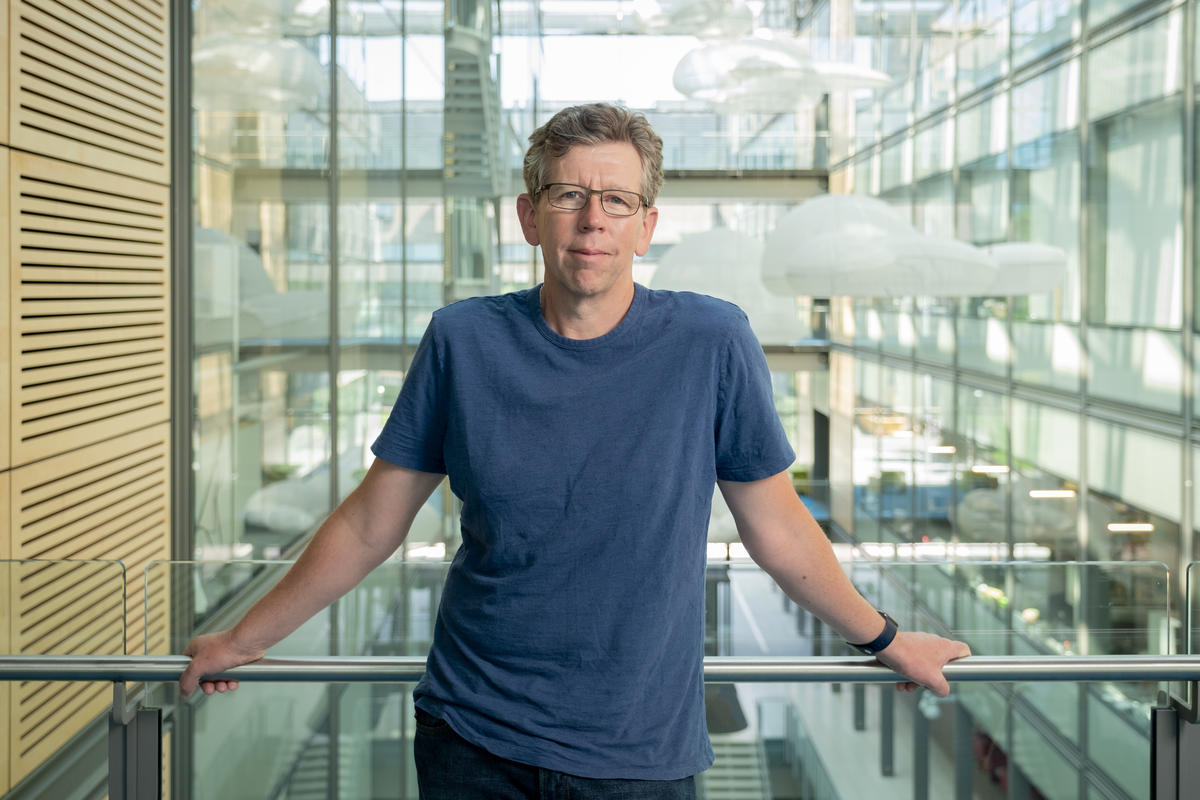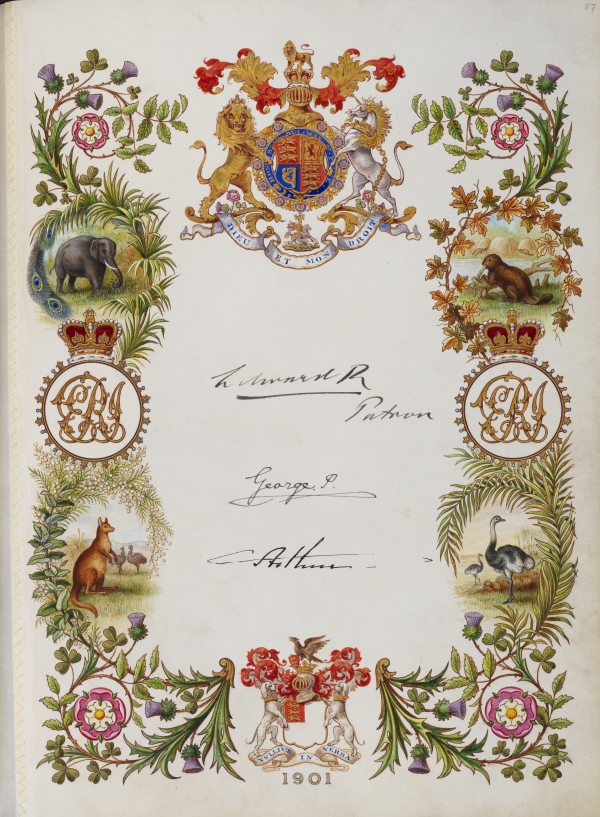Muir Elected a Fellow of The Royal Society
The Van Zandt Williams Jr. Class of 1965 Professor of Chemistry, Thomas Muir, has been elected a Fellow of the Royal Society of London, an august conclave of scientists founded in 1660 whose mission is the celebration of natural knowledge.
Fellowships are awarded annually to individuals around the world who have made “a substantial contribution to the improvement of natural knowledge,” according to the Society.
Muir is honored for his work at the interface of chemistry and biology, where he has developed a suite of technologies that provide fundamental insights into how proteins work. He is one of 52 newly elected Fellows, 10 Foreign Members, and one Honorary Fellow, each nominated by peers and appointed for life.

Photo by C. Todd Reichart
With the announcement, Muir earns the distinction of FRS – Fellow of the Royal Society – joining 8,000 of the world’s most eminent scientists from the past 350 years, including Sir Isaac Newton – along with Edmond Halley, the Society published Newton’s Principia in 1687 – Charles Darwin, Alfred Einstein, Stephen Hawking, and Queen Victoria, who was an honorary Royal Fellow.
The Society is the oldest national scientific institution in the world.
“I am obviously greatly honored to be elected to the Royal Society. I can still vividly remember when my graduate mentor, the late Bob Ramage, whom I revered, was elected, never once dreaming that I would also receive such recognition,” said Muir, a chemical biologist. “I have been so incredibly lucky to work with an amazing group of students, postdocs, and collaborators during my career. Recognition like this speaks as much to their efforts as it does mine.
“I would also like to take this opportunity to thank my colleagues in the department for all their support, particularly during my tenure as chair,” added Muir. “There is no way I could have kept my research program moving forward without the help of many individuals on the faculty and staff.”
By tradition, inductees are feted each summer at the New Fellows’ Seminar and Admission Day, during which they are bound to sign the Society’s Charter Book, a singular historical document begun in 1663 and bearing the signatures of Founder and Royal Patron King Charles II, all the British monarchs (except William and Mary), and each fellow elected year-by-year ever since.

Image courtesy of The Royal Society
Due to restrictions surrounding COVID-19, however, the Society has postponed the annual ceremony. It is currently reviewing options for an in-person celebration.
“The global pandemic has demonstrated the continuing importance of scientific thinking and collaboration across borders,” said Sir Adrian Smith, president of the Society. “Each Fellow and Foreign Member brings their area of scientific expertise to the Royal Society and when combined, this expertise supports the use of science for the benefit of humanity.
“Our new Fellows and Foreign Members are all at the forefronts of their fields, from molecular genetics and cancer research to tropical open ecosystems and radar technology. It is an absolute pleasure and honor to have them join us.”
The Muir lab investigates the physiochemical basis of protein function in complex systems of biomedical interest. Muir has developed methods that allow recombinant polypeptides and synthetic molecules to be ligated together chemo- and regio-specifically. This technology opens up the world of proteins to the tools of organic chemistry by allowing the insertion of unnatural amino acids, posttranslational modifications, and isotopic probes site-specifically into proteins.
These methods are used worldwide to address fundamental problems in protein biochemistry.
Muir came to the faculty of the Department of Chemistry in 2010. He served as the chair from 2014 to 2020. He received his B.Sc. and his Ph.D. in chemistry from the University of Edinburgh, and did his postdoc at the Scripps Research Institute. He was on the faculty at the Rockefeller University from 1996 until he came to Princeton.
Muir has received two additional commendations over the past year. In 2020, he was one of 270 scientists elected to the American Academy of Arts and Sciences in the area of Biological Sciences. The Academy is one of the oldest learned societies in the United States.
Earlier this year, he was awarded the 2020 Ira Remsen Award by the Maryland Section of the American Chemical Society. Inaugurated in 1946, the Remsen Award honors chemists of outstanding achievement in teaching and research in chemistry. John Groves, the Hugh Stott Taylor Chair of Chemistry and professor of chemistry, won the Remsen Award in 2010.
The Royal Society is a self-governing Fellowship of many of the world’s most distinguished scientists drawn from all areas of science, engineering, and medicine. The Society’s fundamental purpose, as it has been since its founding, is to recognize, promote, and support excellence in science and to encourage the development and use of science for the benefit of humanity.
Read the Society’s full press release here: https://royalsociety.org/news/2021/05/new-fellows-announcement-2021/
